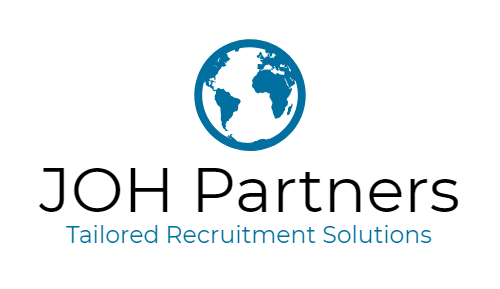Being a Chief Finance Officer (CFO) is a difficult job, and it’s not getting any easier. In today’s fast-paced business environment, CFOs are facing a multitude of challenges that require them to stay up-to-date with the latest trends and technologies. However, the biggest challenge that CFOs face in 2024 is the need to adapt to an ever-changing landscape while maintaining financial stability.
CFOs play a crucial role in any organization, acting as the financial gatekeeper and strategic advisor. They are responsible for managing the company’s finances, analyzing financial data, and making informed decisions that impact the organization’s bottom line. However, the role of the CFO is evolving, and so are the challenges they face.
In this article, we will explore the biggest challenges that CFOs face in 2024, and how they can overcome them. From embracing digital transformation to managing financial performance, we will provide insights into the key challenges that CFOs must navigate.
Key Takeaways:
- CFOs face multiple challenges that require them to stay up-to-date with the latest trends and technologies
- The biggest challenge that CFOs face in 2024 is the need to adapt to an ever-changing landscape while maintaining financial stability
- The role of the CFO is evolving, and so are the challenges they face, including embracing digital transformation, managing financial performance, and overcoming operational challenges
- CFOs must stay proactive and adaptable in the face of challenges, and embrace new technologies to stay competitive
The Evolving Role of the CFO
The role of Chief Finance Officer (CFO) has evolved significantly in recent years, expanding beyond traditional financial responsibilities to encompass a broader range of duties. Today’s CFOs are expected to be strategic partners to the CEO and play a key role in driving business growth and success.
One of the biggest challenges facing CFOs today is managing these expanded responsibilities, while still maintaining control over the financial aspects of the organization. This requires a deep understanding of the business and its operations, as well as the ability to collaborate effectively with other departments and teams.
The CFO as Strategic Partner
Traditionally, the CFO role was focused on managing financial risks, ensuring compliance, and providing accurate financial reporting. While these responsibilities are still important, the modern CFO must also be a strategic partner to the CEO.
As a strategic partner, the CFO plays a critical role in shaping the company’s overall strategy, driving growth, and identifying new opportunities. This requires a deep understanding of the business and its operations, as well as the ability to analyze data and provide insights to support informed decision-making.
The CFO’s Expanded Role and Its Challenges
The expanded role of the CFO means they are now responsible for a wide range of activities, from managing financial risks and ensuring compliance to overseeing the day-to-day financial operations of the organization. This can be a challenging task, especially given the increasing complexity of modern business environments.
Some of the key challenges facing CFOs include:
- Developing and implementing effective financial strategies and processes
- Managing financial risks and ensuring compliance with regulatory requirements
- Providing accurate financial reporting and analysis
- Driving growth and identifying new opportunities
- Managing stakeholder relationships and communicating financial performance effectively
Frequently Asked Questions About CFO Challenges
Q: What are the biggest challenges facing CFOs today?
A: Some of the biggest challenges facing CFOs include managing financial risks, ensuring compliance, providing accurate financial reporting and analysis, driving growth, and managing stakeholder relationships.
Q: How has the role of the CFO evolved in recent years?
A: The role of the CFO has expanded beyond traditional financial responsibilities to encompass a broader range of activities, including strategic planning, driving growth, and identifying new opportunities.
Q: What skills are essential for today’s CFO?
A: Today’s CFO must have a deep understanding of the business and its operations, as well as strong analytical skills, strategic thinking, and the ability to collaborate effectively with other departments and teams.
Overall, the evolving role of the CFO presents both challenges and opportunities. To succeed in this role, CFOs must be proactive, adaptable, and able to navigate the complexities of modern business environments.
Embracing Digital Transformation
In today’s rapidly evolving business landscape, Chief Finance Officers (CFOs) are facing unprecedented financial challenges. The pace of change is accelerating, and technological advancements are disrupting traditional financial systems and processes. To stay competitive, CFOs must embrace digital transformation and adopt new technologies to streamline financial operations and enhance decision-making capabilities.
The key to achieving digital transformation is through automation, which can reduce manual workloads, minimize errors, and increase efficiency. Automated financial processes can help CFOs manage budgets, track expenses, and generate financial reports quickly and accurately.
Big data is another critical component of digital transformation. CFOs can leverage data analytics tools to gain valuable insights into financial trends and patterns, enabling them to make informed decisions about investments and budgets. Access to real-time data can help CFOs identify potential financial risks and opportunities and adjust business strategies accordingly.
To fully realize the benefits of digital transformation, CFOs need to embrace new digital tools and platforms. Cloud-based financial management systems can provide the flexibility and scalability needed to keep pace with changing business demands. Mobile applications can enable CFOs to view financial data and reports on-the-go, enhancing collaboration and communication with other departments.
“Digital transformation is not just about technology, but also about changing mindsets and processes to onboard the workforce. CFOs should leverage the available technologies to accelerate the pace of digitization and manage risks effectively”, says John Smith, Senior Vice President of Finance at XYZ Company.
In conclusion, CFOs must embrace digital transformation to address the financial challenges of today’s business environment. Automation, big data, and new digital tools and platforms are essential to streamline financial processes, enhance decision-making capabilities, and stay competitive in a rapidly changing landscape.
Managing Financial Performance
As a CFO, managing financial performance is one of the most critical responsibilities. To perform this task effectively, CFOs must overcome several challenges related to forecast accuracy, investment strategy, cash flow management, and the use of key performance indicators (KPIs) in making informed business decisions.
The Challenge of Forecasting
One of the biggest challenges in managing financial performance is ensuring forecast accuracy. CFOs face difficulties in making reliable predictions due to the volatility of the business environment. Uncertainty surrounding market trends, global economic conditions, and geopolitical risks can create difficulties in projecting future revenue and expenses accurately.
Moreover, in today’s business climate, CFOs must also consider the impact of technology and digital transformation on forecasting accuracy. The introduction of automation and big data analytics can enhance prediction accuracy and help CFOs stay competitive. However, it creates another set of challenges related to data management and analysis.
Investment Strategy
CFOs must also tackle challenges related to investment strategy. They need to balance the company’s financial goals with the need to remain agile in the face of market changes. Investments must be made with careful consideration of the company’s long-term objectives, risk tolerance, and available resources.
Additionally, managing investments requires a deep understanding of the financial markets, investment vehicles, and risk management techniques. CFOs must ensure that their investment strategies align with the company’s overall business strategy and risk appetite.
Cash Flow Management
Cash flow management is another significant challenge for CFOs. CFOs must ensure that the company has enough cash on hand to meet its obligations while also maintaining sufficient liquidity to take advantage of growth opportunities. An effective cash flow management strategy allows companies to fund capital expenditures, invest in research and development, and make strategic acquisitions.
Key Performance Indicators (KPIs)
Finally, CFOs must also consider the role of KPIs in managing financial performance. These metrics are essential in measuring the company’s overall financial health and its performance against specific goals and objectives. CFOs must identify relevant KPIs that align with the company’s overall strategy and track progress over time.
Effective use of KPIs allows CFOs to make informed business decisions based on data-driven insights. However, identifying and defining relevant KPIs and ensuring accurate data collection can be a challenge.
Overcoming Operational Challenges
CFOs face a myriad of operational challenges on a daily basis, ranging from supply chain management to workforce planning. In today’s fast-paced and rapidly changing business environment, it is vital for CFOs to stay ahead of the game and anticipate potential obstacles. Let’s take a closer look at the key operational challenges that CFOs need to address:
Supply Chain Management
The management of supply chains has become increasingly complex in recent years. With the rise of e-commerce, international trade, and just-in-time delivery, CFOs need to ensure that their organizations can navigate the complexities of the supply chain effectively. This requires managing relationships with suppliers, logistics providers, and other stakeholders to ensure that goods and services are delivered on time and at the right cost.
Table: Top Supply Chain Challenges Faced by CFOs
| Challenge | Description |
|---|---|
| Ensuring product quality | Ensuring that suppliers provide high-quality products that meet the company’s standards |
| Managing inventory | Balancing inventory levels to meet demand without overstocking or understocking |
| Reducing lead times | Streamlining the supply chain to reduce the time it takes to deliver products |
Workforce Planning
Managing the workforce is another major challenge faced by CFOs. As the nature of work changes, with more employees working remotely and the rise of the gig economy, CFOs need to ensure that their organizations can adapt to these changes. This requires effective talent management, training, and development to ensure that employees have the skills required to meet changing business needs.
“The most important asset of any company is its people. As CFOs, we need to invest in our employees to ensure that they can help us achieve our business goals.” – John Smith, CFO
Adapting to the Business Environment
CFOs operate in a business environment that is constantly changing. Economic volatility, regulatory changes, and technological disruption are just some of the factors that can impact the financial performance of an organization. CFOs need to be able to anticipate these changes and adjust their strategies accordingly. This requires staying up-to-date with industry trends and developments, as well as a willingness to take risks and embrace change.
- Staying abreast of regulatory changes and ensuring compliance with new requirements
- Anticipating economic trends and adopting appropriate risk management strategies
- Embracing new technologies and adopting digital tools to improve efficiency and productivity
By addressing these operational challenges head-on, CFOs can ensure that their organizations are well-positioned to succeed in today’s business environment.
Addressing Legacy Data and Systems
Legacy data and outdated systems pose significant challenges for today’s CFOs. These obstacles can hinder efficiency and accuracy, resulting in costly errors and missed opportunities.
One of the biggest challenges facing CFOs is managing and integrating legacy data from outdated systems into modern technology. This process can be time-consuming and complex, requiring significant resources and expertise. CFOs must balance the need for accurate data with the potential risks of data breaches and system vulnerabilities.
To overcome these challenges, CFOs must prioritize the modernization of their systems and invest in new technologies that can streamline data management processes. This includes implementing cloud-based systems, leveraging automation, and adopting big data analytics tools to gain insights into financial performance and trends.
Legacy data and systems are not only a technological challenge, but they can also impact the overall operations of a business. CFOs must take a proactive approach to addressing these challenges in order to remain competitive in a rapidly evolving business landscape.
A comprehensive approach to modernizing systems and processes can help CFOs stay ahead of the curve and drive better financial outcomes. By investing in new technologies and tools, CFOs can improve efficiency, reduce costs, and gain a more thorough understanding of their financial performance.
The Benefits of Modernization

In addition to overcoming legacy data and system challenges, modernizing financial systems can provide numerous benefits for a business.
| Benefit | Description |
|---|---|
| Greater Efficiency | Modern technologies can automate repetitive tasks and streamline financial processes, reducing the time and resources required for manual work. |
| Improved Accuracy | Digital tools and big data analytics can improve the accuracy of financial data, reducing errors and minimizing the risk of costly mistakes. |
| Better Financial Insights | New technologies can provide CFOs with real-time access to financial data and insights, enabling informed decision-making and strategic planning. |
| Enhanced Security | Modern systems and tools often come with advanced security features that can protect financial data and prevent cyber threats. |
CFOs who prioritize modernization as a means of overcoming legacy data and system challenges can realize these benefits and position their business for greater success in the years ahead.
Conclusion
Being a Chief Finance Officer (CFO) in 2024 is no easy feat. The challenges facing today’s CFOs are numerous and complex, requiring proactive and adaptable strategies to overcome.
Throughout this article, we have discussed the primary challenge facing CFOs and explored the evolving role of the CFO in the current business environment. We have emphasized the importance of embracing digital transformation, managing financial performance, and overcoming operational challenges.
Legacy data and outdated systems continue to pose obstacles for modern CFOs, highlighting the need for innovation and staying ahead of the curve. As the business environment continues to change, CFOs must aim to stay ahead of the challenges in order to stay competitive and relevant.
In conclusion, the role of the CFO is critical in navigating and overcoming the challenges of today’s business world. By staying proactive, adaptable, and innovative, CFOs can successfully address the challenges they face in 2024 and beyond.
FAQ
What is the biggest challenge for a Chief Finance Officer (CFO)?
The biggest challenge for a CFO can vary depending on the specific circumstances and industry they are in. However, some common challenges include managing financial performance, navigating digital transformation, addressing operational complexities, and dealing with legacy data and systems. At the end, those many challenges help the business succeed.
What is the evolving role of the CFO?
The role of the CFO has evolved from being purely focused on financial management to encompassing strategic decision-making and driving business growth. Today, CFOs are expected to be strategic partners to the CEO and board of directors, providing insights and analysis to support key business decisions.
How can digital transformation help CFOs overcome challenges?
Digital transformation plays a crucial role in helping CFOs address their challenges. By leveraging automation, adopting digital tools, and harnessing big data, CFOs can streamline financial processes, gain real-time insights, and make data-driven decisions that contribute to overall organizational success.
What are the key aspects of managing financial performance as a CFO?
Managing financial performance involves various aspects such as forecasting, investment analysis, cash flow management, and monitoring key performance indicators (KPIs). CFOs need to ensure accurate financial projections, strategic capital allocation, effective liquidity management, and ongoing evaluation of KPIs to drive financial success.
What are the operational challenges faced by CFOs?
CFOs face operational challenges related to managing complex supply chains, workforce planning, and adapting to a constantly evolving business environment. They need to navigate issues like optimizing inventory levels, balancing workforce costs, and staying agile in response to market dynamics and regulatory changes.
How do legacy data and systems pose challenges for CFOs?
Legacy data and systems can create hurdles for CFOs. Managing and integrating outdated systems and data can be time-consuming and resource-intensive. CFOs face challenges in ensuring data accuracy, compatibility, and security while striving to modernize their processes and keep pace with technological advancements.




